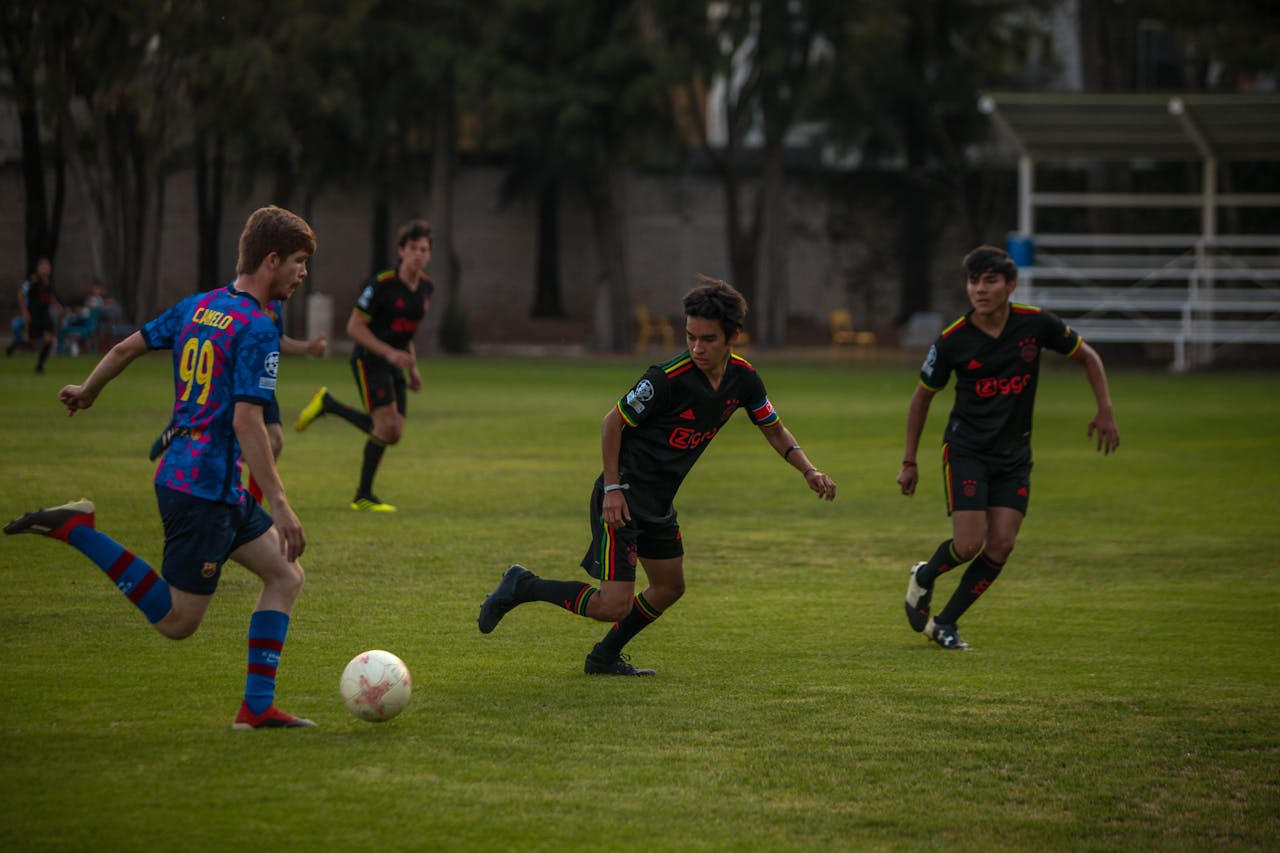5
Sports science
Last Updated: November 5, 2024

Table of Contents
Sports science is the fusion of scientific principles with sports training and performance. Applying the scientific method to training practices improves performance for athletes and teams looking to boost their sports performance, leading to more success in a competitive season.
Key Takeaways
- Definition: Sports science focuses on understanding how the human body responds to physical activity, aiming for optimal performance.
- Key Areas: Includes exercise physiology, sport psychology, physical training, and proper nutrition.
- Education: Sports science courses are increasingly popular, offering insights into human performance and mental health.
- Injury Prevention: Sports scientists work to prevent injuries and improve performance in professional and individual athletes.
- Technology: Staying up to date with advancements helps sports scientists optimize training.
- Application: Beneficial for both professional athletes and those in physical education.
Definition of Sports Science
Sports science is a broad term that describes applying scientific knowledge and research to improve performance. Sport scientists combine research, motion capture technology, data analysis, and more with coaches’ and athletes’ practical experience to modify training and recovery protocols, pushing the envelope of human ability.
Applications of Sports Science
Professional sports teams, colleges and universities, and strength sports athletes apply science when developing training programs. The benefits of their research trickle down to the general public, too, with research articles and new training methods being disseminated regularly for both sports improvement and general health. Amateur and professional athletes benefit from new ideas and techniques found through science.
Human Performance
Ned Hanlan, a Canadian rower, dominated his sport from 1874 until the early 1900s. Unlike his competitors, Ned applied scientific principles and assistive technology alongside hard work, building a competitive edge. Ned was an early adopter of sports science, working with a team to understand the underlying principles that make a winning athlete. Reaction time, power and force production, training volume, balance, exercise methods, and more fall under the category of “human performance.”
For over 100 years of professional sports, athletes and coaches have looked for ways to build more strength and power while reducing fatigue and chances of injury. Sports researchers explore the practical application of research in kinesiology, biomechanics and sports psychology, distilling it into applicable methods to make the best possible athletes for their sport.
Personal and public health
Much of the available science on injury and recovery comes from the sport science domain. Due to the high level of funding in college and professional sports, and the close relationship these leagues have to research universities, there is a massive benefit to personal and public health.
The same concepts that apply to sports settings can apply to the average person, with injury recovery, general health, and fitness improvement concepts remaining nearly universal. Whether someone is looking to dominate the soccer pitch at the World Cup or to rehabilitate their golf swing for a casual weekend round, sports science helps them compete to the best of their ability and maintain their health.
Components of Sport Science
The human body is an incredibly complex system. Because of the many domains of improvement, athletes often work with a support network of specialists to improve overall performance.
Biomechanics
Biomechanics studies the physics of human movements, like force, velocity, and changes in angle. Researchers use 3D motion capture software, force plates, isokinetic dynamometers, gravity-dependent goniometers, and more to understand and assess how muscles, joints, and bones work together to perform tasks. That task could be anything from throwing a fastball to running a 100-meter sprint.
Knowing how the individual components of the body work together to accomplish a sports goal gives coaches an idea of where they can improve, where power is being lost, or how to help an athlete reach their peak.
Sports psychology
An athlete’s mind is their most important tool. Sports psychologists look at competitive anxiety and personality traits to find mental methods to elevate execution on the field. Team cohesion, stress-coping strategies and goal setting are some areas where psychological science has been applied to achieve sports excellence.
Performance Analysis
Analyzing processes and outcomes is paramount in training, practice, or in-game scenarios. Finding specific weaknesses is the first step in effectively developing a plan for success. Researchers look at the relationship between training variables like exercise selection and movement form and correlate these to performance outcomes like running speed and jump height. Knowing the impact of work done off the field and how it leads to performance in-game gives coaches and trainers the capacity to understand what’s important during and off-season.
Nutrition
No amount of hard work in the gym or practice on the field can make up for poor nutrition. Eating and supplementing properly to maintain health and provide the important energy to train and recover is necessary to make an athlete or individual the best they can be. Professionals apply sports science to find optimal nutrition plans for their athletes.
Recovery
Closely tied to nutrition is the concept of recovery. The faster an athlete can return to top condition after a match or training session, the more likely they are to make long-term progress in their sport. Perhaps more importantly, the benefits gained through research often allow athletes to return quicker to their sport following acute injuries. Through new rehabilitation processes, supplements, dietary changes and specific recovery tools, applying research to address athletes’ recovery is a huge part of sports today.
Technology
Some teams and institutions have developed cutting edge technology to learn more about making athletes better. From VO2 max testing on a treadmill to squatting with motion-tracking barbells, various technical advances are currently used to study and improve athletes’ performance. This technology has hugely increased the effectiveness of modern exercise and athletic training protocols.
Careers in Sports Science
People often have an idea of scientists in white lab coats with bunsen burners, but sports research looks very different. At sports stadiums and weight rooms worldwide, sports science practitioners often look like your average athletic coach. The settings for sports science look much like any other sports facility with a bit more technology included.
These researchers’ work involves assessing performance, hypothesizing research questions, finding ways to test those hypotheses, and publishing articles on their findings. Their work pushes the limits of what the human body can achieve, assessing the relationship between training, psychology, and gameday outcomes. Sports teams and research universities primarily offer these careers.
Sport Science as an Academic Discipline
Commonly known as exercise science or kinesiology, university sports science programs exist worldwide. Men and women looking to learn the ins and outs of sports research and improvement can study for a Bachelor, Master’s or Doctorate degree. See our Anahana page on Kinesiology for more information.
Frequently Asked Questions
How does one get started with sports science?
Most sports researchers work at universities, and those working in professional sports are often recruited from university research jobs. The first step to these careers is a degree in a sports-related discipline, like kinesiology, exercise science, or psychology. Some colleges and universities, like the University of Surrey, and British Columbia, Canada, offer specific Sport Science programs.
Is sports science a science?
Yes. Where natural sciences like biology or chemistry study aspects of the natural world, sports science is a social discipline looking at human interactions and behaviors. It is a new discipline. Still, many research articles and international journals focus on social sciences, with some directly related to sports.
Where to learn more about the ins and outs of sports science?
The internet is a great place to start. YouTube and other websites have an extraordinary amount of information on sports science. Even mainstream TV programs like John Brenkus’ Sports Science on ESPN provide great information about the practically-applied side of sports science.
References
The Sensor Ready Eleiko IPF Powerlifting Training Bar
What Is Sport Science? - Sydney Sports and Exercise Physiology
The American College of Sports Medicine
Strengthening the Practice of Exercise and Sport-Science Research. | Semantic Scholar
Sport Science (TV Series 2007– ) - IMDb
Disclaimer
The contents of this article are provided for informational purposes only and are not intended to substitute for professional medical advice, diagnosis, or treatment. It is always recommended to consult with a qualified healthcare provider before making any health-related changes or if you have any questions or concerns about your health. Anahana is not liable for any errors, omissions, or consequences that may occur from using the information provided.

Dr. Darlene Buan-Basit is a highly experienced licensed Chiropractor and Pilates instructor with expertise in many techniques, including Medical Acupuncture, Traditional Chinese Medicine, and Advanced Massage Techniques.
